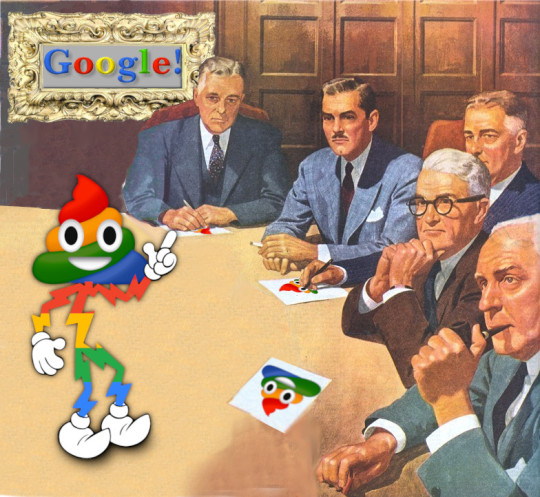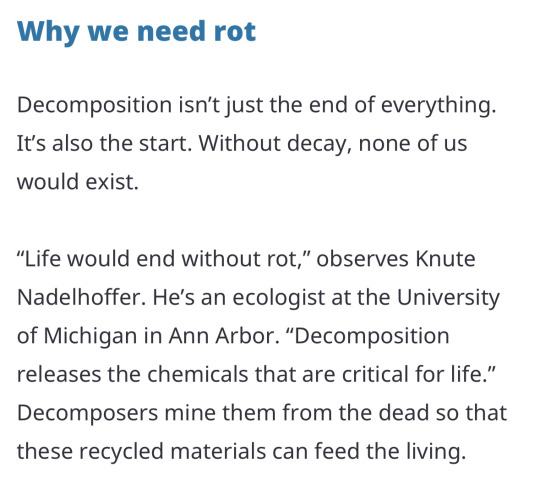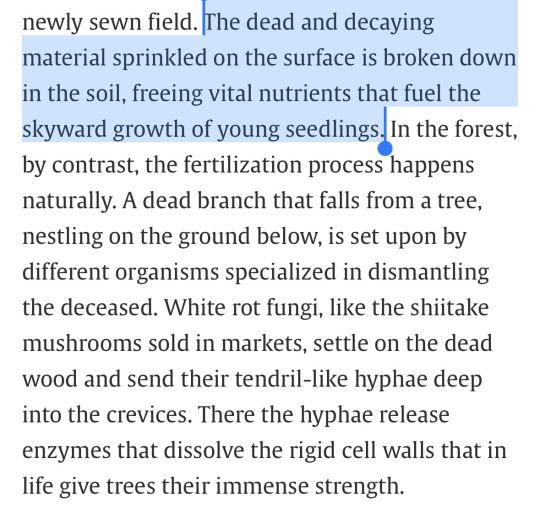#rot and decay
Text


The Blaschka Glass Models of Plants
13 notes
·
View notes
Text
rot and decay
Now you’ve got me right where you want me
Cornered with my hands tied,
Strapped to this chair without hope to get out alive
Let’s rewind.
Play it back through to everything
You won’t take responsibility for.
How you never stood where I stand
Forced my bud to open up
Promising such pretty assurances
And when your empathetic nature played a little too pathetic
You blamed it all on me
Here’s your cake, do you want to eat it too?
Beware the rot and decay
That’ll take your system by storm.
Double fist it, seems you’ve got the stomach for it
And while you’re gorging yourself on it
Imma make my escape quick
Cause the truth is, you need to look in the mirror
Before you come back around here
And blame me for it.
So now what? I second guess everything?
How far back do I have to go?
You cannot tell me you have raged
Because you didn’t even first try trying
And you can have all this nice little fingerprinted cake
With a sugar-blame frosting
And watch the cavities that are tripping your tongue
And figure yourself out,
Cause you just admitted you’ve been lying
And you’re so afraid of being called a fake
Cause that’s exactly what you’ve been.
I’m sorry, a spade is a spade
And only you can decide what you’ll be
You’ve been making your decisions.
I told you before, only you can know
What is in your heart
Here’s your cake. You can eat it, too.
–blueprint poetry
#poetry#blueprint poetry#abuse#neglect#strained relationship#broken relationship#healing#trauma#recovery through poetry#gaslighting#poets of tumblr#poemblr#christianity#my faith#by it i see the world#rot and decay
8 notes
·
View notes
Text
i looked so hot today at the bookstore and for what. 😔
4 notes
·
View notes
Text





So happy to finally show off my final piece for the Tome of Pacts zine I feature in.
This is Hagne, the Herald of Rot, and faithful servant to her Patron, Cicardia. Her look was inspired by several things -- death masks, pomegranates, worn bronze, flies and centipedes. The butterflies she carries feed on death and decay. Hagne herself felt the cold embrace of the grave, but was blessed to find herself given another chance. She will not fail.
I am so honored to have been a part of this project, and this is one of my favorite pieces to date. I hope you guys enjoy it as well. :)
#hagne#herald of rot#art#my art#concept art#illustration#character design#cw: bugs#cw: pomegranates ;)#costume design#tiefling#dnd oc#warlock#she brings death and decay to wherever she goes#you want her to be your gf? love is eternal after all...
8K notes
·
View notes
Text

no longer standing, illinois, 2017
#midwest#backroads#original photography#abandoned#abandoned home#midwest gothic#americana#decay#rot#jaggedplains#ruralrevivals
4K notes
·
View notes
Text

Couple's banners for all my current breeding pairs!
#flight rising#fr art#frfanart#my dragons#jem draws#coatl#fr imperial#fr ridgeback#pearlcatcher#accidentally made Decay and Rot too small OTL#managed to forcibly pull myself out of art block
1K notes
·
View notes
Text

#arizona#southwest#southwestern gothic#americana#roadside#rural decay#rural america#abandoned#urban decay#rot
2K notes
·
View notes
Text




Graveyard in Paris, last year
#graveyard#religious art#gothic#religious aesthetic#mother mary#sorrow#religous themes#gravestone#lady of sorrows#jesus christ#black cat#tw religious themes#rotting#decay#mine
1K notes
·
View notes
Text



#mine#DO NOT REUPLOAD#photography#original photography#bones#vulture culture#bone collecting#dead animal#decay#rot#rotten#rural#ruralcore#rural gothic#southern gothic#regional gothic#brown aesthetic
577 notes
·
View notes
Text
The specific process by which Google enshittified its search

I'm touring my new, nationally bestselling novel The Bezzle! Catch me SATURDAY (Apr 27) in MARIN COUNTY, then Winnipeg (May 2), Calgary (May 3), Vancouver (May 4), and beyond!

All digital businesses have the technical capacity to enshittify: the ability to change the underlying functions of the business from moment to moment and user to user, allowing for the rapid transfer of value between business customers, end users and shareholders:
https://pluralistic.net/2023/02/19/twiddler/
If you'd like an essay-formatted version of this thread to read or share, here's a link to it on pluralistic.net, my surveillance-free, ad-free, tracker-free blog:
https://pluralistic.net/2024/04/24/naming-names/#prabhakar-raghavan
Which raises an important question: why do companies enshittify at a specific moment, after refraining from enshittifying before? After all, a company always has the potential to benefit by treating its business customers and end users worse, by giving them a worse deal. If you charge more for your product and pay your suppliers less, that leaves more money on the table for your investors.
Of course, it's not that simple. While cheating, price-gouging, and degrading your product can produce gains, these tactics also threaten losses. You might lose customers to a rival, or get punished by a regulator, or face mass resignations from your employees who really believe in your product.
Companies choose not to enshittify their products…until they choose to do so. One theory to explain this is that companies are engaged in a process of continuous assessment, gathering data about their competitive risks, their regulators' mettle, their employees' boldness. When these assessments indicate that the conditions are favorable to enshittification, the CEO walks over to the big "enshittification" lever on the wall and yanks it all the way to MAX.
Some companies have certainly done this – and paid the price. Think of Myspace or Yahoo: companies that made themselves worse by reducing quality and gouging on price (be it measured in dollars or attention – that is, ads) before sinking into obscure senescence. These companies made a bet that they could get richer while getting worse, and they were wrong, and they lost out.
But this model doesn't explain the Great Enshittening, in which all the tech companies are enshittifying at the same time. Maybe all these companies are subscribing to the same business newsletter (or, more likely, buying advice from the same management consultancy) (cough McKinsey cough) that is a kind of industry-wide starter pistol for enshittification.
I think it's something else. I think the main job of a CEO is to show up for work every morning and yank on the enshittification lever as hard as you can, in hopes that you can eke out some incremental gains in your company's cost-basis and/or income by shifting value away from your suppliers and customers to yourself.
We get good digital services when the enshittification lever doesn't budge – when it is constrained: by competition, by regulation, by interoperable mods and hacks that undo enshittification (like alternative clients and ad-blockers) and by workers who have bargaining power thanks to a tight labor market or a powerful union:
https://pluralistic.net/2023/11/09/lead-me-not-into-temptation/#chamberlain
When Google ordered its staff to build a secret Chinese search engine that would censor search results and rat out dissidents to the Chinese secret police, googlers revolted and refused, and the project died:
https://en.wikipedia.org/wiki/Dragonfly_(search_engine)
When Google tried to win a US government contract to build AI for drones used to target and murder civilians far from the battlefield, googlers revolted and refused, and the project died:
https://www.nytimes.com/2018/06/01/technology/google-pentagon-project-maven.html
What's happened since – what's behind all the tech companies enshittifying all at once – is that tech worker power has been smashed, especially at Google, where 12,000 workers were fired just months after a $80b stock buyback that would have paid their wages for the next 27 years. Likewise, competition has receded from tech bosses' worries, thanks to lax antitrust enforcement that saw most credible competitors merged into behemoths, or neutralized with predatory pricing schemes. Lax enforcement of other policies – privacy, labor and consumer protection – loosened up the enshittification lever even more. And the expansion of IP rights, which criminalize most kinds of reverse engineering and aftermarket modification, means that interoperability no longer applies friction to the enshittification lever.
Now that every tech boss has an enshittification lever that moves very freely, they can show up for work, yank the enshittification lever, and it goes all the way to MAX. When googlers protested the company's complicity in the genocide in Gaza, Google didn't kill the project – it mass-fired the workers:
https://medium.com/@notechforapartheid/statement-from-google-workers-with-the-no-tech-for-apartheid-campaign-on-googles-indiscriminate-28ba4c9b7ce8
Enshittification is a macroeconomic phenomenon, determined by the regulatory environment for competition, privacy, labor, consumer protection and IP. But enshittification is also a microeconomic phenomenon, the result of innumerable boardroom and product-planning fights within companies in which would-be enshittifiers try to do things that make the company's products and services shittier wrestle with rivals who want to keep things as they are, or make them better, whether out of principle or fear of the consequences.
Those microeconomic wrestling-matches are where we find enshittification's heroes and villains – the people who fight for the user or stand up for a fair deal, versus the people who want to cheat and wreck to make things better for the company and win bonuses and promotions for themselves:
https://locusmag.com/2023/11/commentary-by-cory-doctorow-dont-be-evil/
These microeconomic struggles are usually obscure, because companies are secretive institutions and our glimpses into their deliberations are normally limited to the odd leaked memo, whistleblower tell-all, or spectacular worker revolt. But when a company gets dragged into court, a new window opens into the company's internal operations. That's especially true when the plaintiff is the US government.
Which brings me back to Google, the poster-child for enshittification, a company that revolutionized the internet a quarter of a century ago with a search-engine that was so good that it felt like magic, which has decayed so badly and so rapidly that whole sections of the internet are disappearing from view for the 90% of users who rely on the search engine as their gateway to the internet.
Google is being sued by the DOJ's Antitrust Division, and that means we are getting a very deep look into the company, as its internal emails and memos come to light:
https://pluralistic.net/2023/10/03/not-feeling-lucky/#fundamental-laws-of-economics
Google is a tech company, and tech companies have literary cultures – they run on email and other forms of written communication, even for casual speech, which is more likely to take place in a chat program than at a water-cooler. This means that tech companies have giant databases full of confessions to every crime they've ever committed:
https://pluralistic.net/2023/09/03/big-tech-cant-stop-telling-on-itself/
Large pieces of Google's database-of-crimes are now on display – so much, in fact, that it's hard for anyone to parse through it all and understand what it means. But some people are trying, and coming up with gold. One of those successful prospectors is Ed Zitron, who has produced a staggering account of the precise moment at which Google search tipped over into enshittification, which names the executives at the very heart of the rot:
https://www.wheresyoured.at/the-men-who-killed-google/
Zitron tells the story of a boardroom struggle over search quality, in which Ben Gomes – a long-tenured googler who helped define the company during its best years – lost a fight with Prabhakar Raghavan, a computer scientist turned manager whose tactic for increasing the number of search queries (and thus the number of ads the company could show to searchers) was to decrease the quality of search. That way, searchers would have to spend more time on Google before they found what they were looking for.
Zitron contrasts the background of these two figures. Gomes, the hero, worked at Google for 19 years, solving fantastically hard technical scaling problems and eventually becoming the company's "search czar." Raghavan, the villain, "failed upwards" through his career, including a stint as Yahoo's head of search from 2005-12, a presiding over the collapse of Yahoo's search business. Under Raghavan's leadership, Yahoo's search market-share fell from 30.4% to 14%, and in the end, Yahoo jettisoned its search altogether and replaced it with Bing.
For Zitron, the memos show how Raghavan engineered the ouster of Gomes, with help from the company CEO, the ex-McKinseyite Sundar Pichai. It was a triumph for enshittification, a deliberate decision to make the product worse in order to make it more profitable, under the (correct) belief that the company's exclusivity deals to provide search everywhere from Iphones and Samsungs to Mozilla would mean that the business would face no consequences for doing so.
It a picture of a company that isn't just too big to fail – it's (as FTC Chair Lina Khan put it on The Daily Show) too big to care:
https://www.youtube.com/watch?v=oaDTiWaYfcM
Zitron's done excellent sleuthing through the court exhibits here, and his writeup is incandescently brilliant. But there's one point I quibble with him on. Zitron writes that "It’s because the people running the tech industry are no longer those that built it."
I think that gets it backwards. I think that there were always enshittifiers in the C-suites of these companies. When Page and Brin brought in the war criminal Eric Schmidt to run the company, he surely started every day with a ritual, ferocious tug at that enshittification lever. The difference wasn't who was in the C-suite – the difference was how freely the lever moved.
On Saturday, I wrote:
The platforms used to treat us well and now treat us badly. That's not because they were setting a patient trap, luring us in with good treatment in the expectation of locking us in and turning on us. Tech bosses do not have the executive function to lie in wait for years and years.
https://pluralistic.net/2024/04/22/kargo-kult-kaptialism/#dont-buy-it
Someone on Hacker News called that "silly," adding that "tech bosses do in fact have the executive function to lie in wait for years and years. That's literally the business model of most startups":
https://news.ycombinator.com/item?id=40114339
That's not quite right, though. The business-model of the startup is to yank on the enshittification lever every day. Tech bosses don't lie in wait for the perfect moment to claw away all the value from their employees, users, business customers, and suppliers – they're always trying to get that value. It's only when they become too big to care that they succeed. That's the definition of being too big to care.
In antitrust circles, they sometimes say that "the process is the punishment." No matter what happens to the DOJ's case against Google, its internal workers have been made visible to the public. The secrecy surrounding the Google trial when it was underway meant that a lot of this stuff flew under the radar when it first appeared. But as Zitron's work shows, there is plenty of treasure to be found in that trove of documents that is now permanently in the public domain.
When future scholars study the enshittocene, they will look to accounts like Zitron's to mark the turning points from the old, good internet to the enshitternet. Let's hope those future scholars have a new, good internet on which to publish their findings.

If you'd like an essay-formatted version of this post to read or share, here's a link to it on pluralistic.net, my surveillance-free, ad-free, tracker-free blog:
https://pluralistic.net/2024/04/24/naming-names/#prabhakar-raghavan
#pluralistic#ed zitron#google#microincentives#constraints#enshittification#rot economy#platform decay#search#ben gomes#code yellow#mckinsey#hacking engagement#Prabhakar Raghavan#yahoo#doj#antitrust#trustbusting
339 notes
·
View notes
Text








decay and feeding new life—
kathiann kowalski // hozier // kobayashi eitaku // cyrus martin // friedrich heyser // gail potocki // william shakespeare
#my friend and i were talking abt rotting but then i went down a rabbit hole#rot and decay in nature is such a fascinating subject to me#but also how it applies in real life too#i think in my imagination we are the ecosystem#so through the death of one part of us another begins anew#i feel like i am shedding skin like a snake#web weaving#web weaves#lyrics#hozier#parallels#art#quotes#shakespeare#decay#haunting#academia#stem#research#mine#rot#philosophy#prose#writing
857 notes
·
View notes
Text

#cannibalism#cannibalposting#gore#decay#rot#wlw#sapphic#sapphic love#wlw post#wlw cannibalism#sapphic cannibalism#ianthe tridentarius#vulture chatter
258 notes
·
View notes
Text


Model depicting internal organs for medical study (1700's)- Science museum, London
#dissection#dissect#anatomy#medical#medical science#medicine#history#science museum#cadaver#mannequin#dead#death#goth#gothic#horror#macabre#morbid#gruesome#goth aesthetic#goth art#eye#evil eye#rotting#decay#internal organs
150 notes
·
View notes
Text
Do you know what I want to see in season 3 of Good Omens?
Crowley and Azriphale picking up each other's habits now their separated.
I wanna see Crowley's apartment slowly descend into disorder, and his light bulbs turn warm.
I wanna see Aziraphale start making incoherent noises to answer questions he doesn't want to answer.
I wanna see Crowley do something mundanely insufferable but human, like get his driver's license.
I wanna see Aziraphale sit in a chair so incorrectly it hurts to look at.
I wanna see Crowley go out of his way to do something kind but inconsequential with nonchalant purpose.
I wanna see Azriaphale find a "glue pennies to the sidewalk" chaos solution to putting off the apocalypse.
I want them to loom at their current situation, distressed and disheveled and go, "What would my other half do? How do I fill the void they left to get help this?"
I want them to start understand each other while they're the farthest apart they've ever been.
#good omens#aziraphale x crowley#aziracrow#ineffable husbands#good omens brainrot#good omens 2#good omens season 3#good omens fandom#ineffable idiots#aziraphale#anthony j crowley#Healing starts in the imitate and grotesque ordeal of being understood#Let them rot in themselves until they find their love is embedded too deeply to allow decay#I want an#Kiss each other#Mwah mwah mwah#And they were both hereditary enemies (they were best friends with ineffable benefits)
129 notes
·
View notes
Text

grundy co., abandoned illinois, 2018
#abandoned#abandoned places#abandoned home#backroads#midwest#decay#rurex#urbex#rot#midwest gothic#americana#original photography#photography#dark#jaggedplains#ruralrevivals
2K notes
·
View notes
